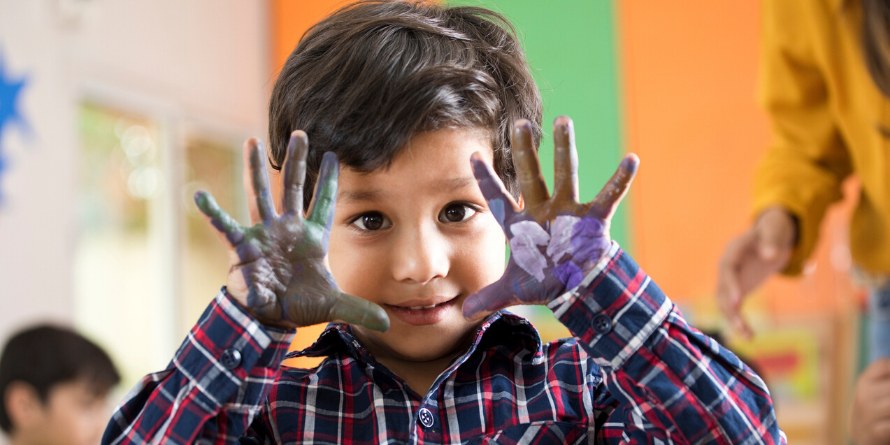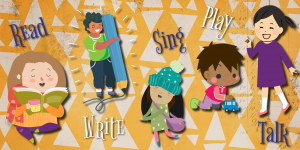
Your infant can write! Well, maybe not essays – yet - but they can start practicing by using their fingers and making a mess!
A child’s ability to write helps develop reading and math skills. In fact, children who are able to write by hand in early elementary have higher predictions of academic success! It is never too early to help your child get started.
The first step is helping your child develop their fine motor skills – the coordination between the small muscles in their hands and fingers.
Babies
- Give your baby something to play in! Yogurt, baby food, pudding, playdough, and so much more will give your baby a fun texture for experimentation. Encourage your baby to wiggle their fingers and use individual fingers when playing.
- Don’t want a mess? No problem! Put a variety of non-toxic paint colors inside a zip-lock bag. Then close the bag and safety tape it shut so that your baby cannot open it. Your baby will be able to squeeze, grip, and touch the paint without making a mess!
- At roughly 10 months to a year of age, babies can start to hold small objects like spoons by themselves. Provide your child with unique and safe tools so they can practice maneuvering small objects in their hands!
Toddlers
- By age two, many toddlers demonstrate awareness that marks carry meaning. This is a great time to have your child write a book! Even if all they can write are scribbles, those scribbles will mean something to your child. Have them tell you a story about their writing so you can learn the meaning too!
- Write for your child. If your child draws a picture, ask what the picture is about. Then, at the bottom of the page, write down what they say. This helps develop not only letter awareness, but also communication skills!
Preschoolers
- Provide a space and materials for your child to write on their own. Encourage them to write as many things as possible – they can even help with your grocery list!
- Let your child create labels for their items, or even regular objects in the household. This helps them practice fine motor skills while developing print awareness and associating new words with meaning.
- Have your child create a pretend menu! Not only is this a great activity that can involve reading, writing, and drawing, but it is also a good way to give your preschooler options so they can choose between meals they have created when it’s time to eat.
With children of all ages, the best way for them to learn is to let them make a mess! Give them crayons, paper, chalk, paint, food items, playdough, slime, and all sorts of other fun materials! Playing with small tactile and sensory objects builds fine motor and gross motor skills, and develops the imagination!
-Kelli, Children's Librarian at Oro Valley Library
 Read, Write, Talk, Sing, Play!
Read, Write, Talk, Sing, Play!
When children are given a chance to explore scribbling, draw pictures, and tell stories, they are learning reading skills. Being an active participant in writing helps keep children excited about reading stories.
Read more about early literacy and how you can make a difference in your child's life.

